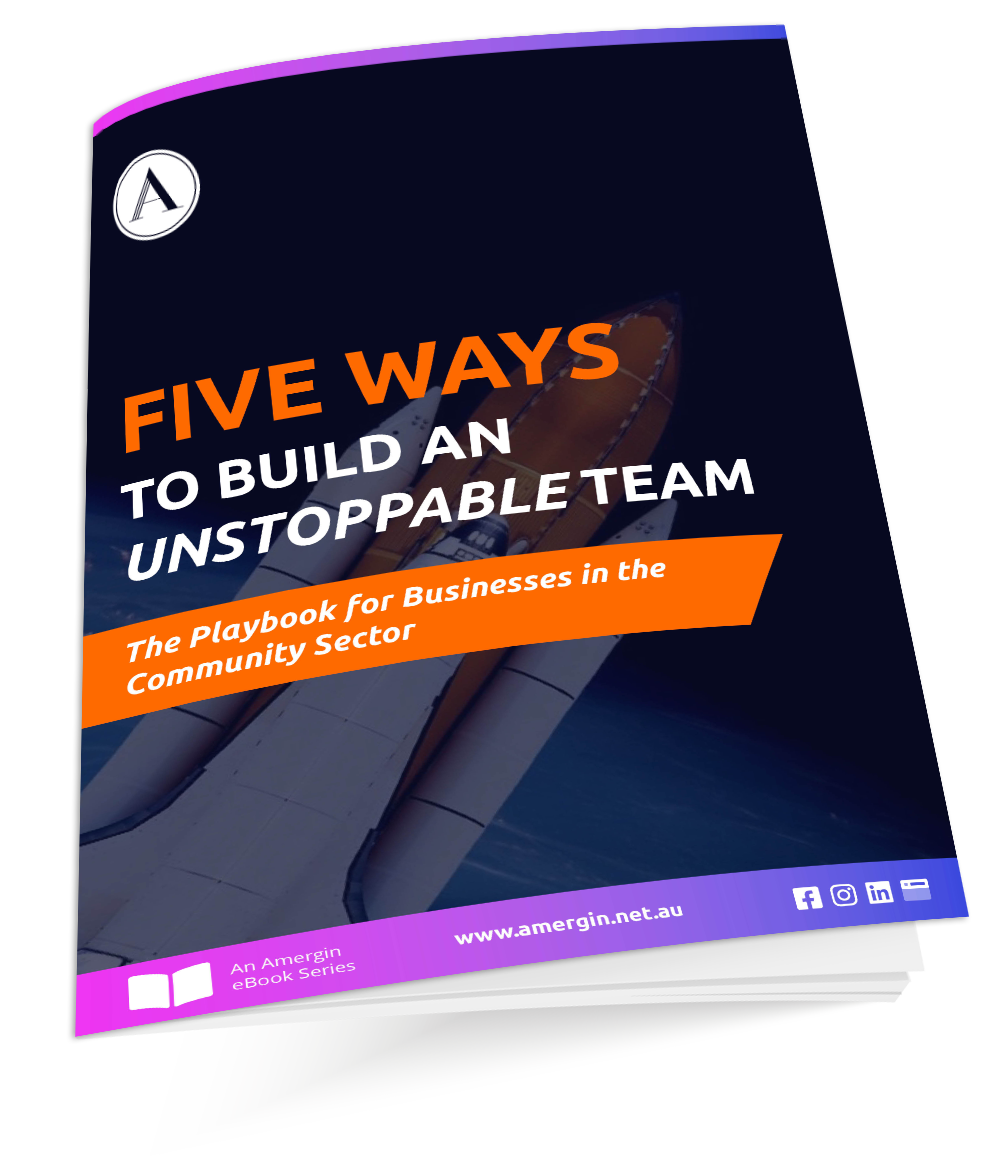Welcome back to Part 2 of our Mindfulness May series, where we discuss mindfulness practices you can implement within your team to support the mental health of your staff members.

If we could do just one thing to increase our health and happiness, expressing gratitude might just be the answer.
Did you know every time a person expresses or receives gratitude, dopamine releases in the brain? Dopamine is a chemical and plays a role in how we feel pleasure. It’s a big part of our unique human ability to think and plan, so the more we practice gratitude, the more often dopamine releases.
Our brains can’t focus on positive and negative things at the same time. This is a key reason why practicing gratitude can help you shift your focus from being sad about the things you don’t have in your life to being glad for the things you do have.
When we’re going through difficult times it can be hard to remember to be grateful for the good things and this is particularly important within the workplace. If your team are consistently experiencing high levels of stress, overworked or on the verge of burnout, it can be very difficult to pinpoint the reasons they enjoy their work, industry or why they are good at what they do.
There is merit to be gained from working gratitude into everyday practice, whether it be through online team conversations or expressing gratitude towards your staff to begin fostering the culture within your organisation.
What are the benefits of Gratitude?
- it’s an instant mood booster and feels great in the moment
- you’re likely to notice the little things in your day
- it’s good for your physical health
- it enhances your relationships and friendships
- you’re likely to enjoy your life more
- it gives you strength to access coping mechanisms to help you through the tougher times
Overall there is a greater sense of feeling connected to others with a more optimistic view towards life.
How Can We Practice Gratitude?
Gratitude is a skill anyone can develop. All it takes is a bit of daily practice. There are many ways we can practice gratitude both in our personal lives and within the workplace. Here are 9 examples of ways you can practice gratitude.
- Tell your staff regularly how much you appreciate them and their efforts within their work practice. Thank them for the little things they do for you, things you may take for granted.
- Notice the beauty in nature each day. The beautiful tree that give us a cool shade on a warm day. The sun, which occasionally shines through the clouds to lift our spirits. A cool sea breeze with its saltiness and depth reminding us of the vastness of the ocean. Encourage your staff to take their lunch breaks away from their desks (we are all guilty of this from time to time) and step outside for some Vitamin D and mindfulness.
- Volunteer. Not only does volunteering helps you connect with your community in a deeper way but it helps to make it a better place. It also helps you see that even the smallest tasks can have a huge impact on another person’s life. This doesn’t mean you have to encourage your staff to engage in volunteering activities as part of their work practice. It can be the simple act of volunteering to take over a task from another staff member whose schedule might be overloaded that week or putting your hand up to help cover work duties for a staff member who is unwell. As a business owner, you play a big role in establishing your workplace culture and supporting your team is a vital part of that.
- Thank the people who serve you in the community – bus driver, building manager, office cleaner etc. Everyone needs to feel appreciated and kindness goes a long way.
- Surround yourself with quotes and images of what brings you joy and happiness and encourage your staff to do the same. Walls and dividers with no colour or meaning are boring and uninspiring. Sometimes that little inspirational quote or photo can make a difference to a staff members day.
- Be thankful when you learn a new skill – you’re never too old to learn something new. Encourage your staff if they want to expand their learning opportunities as not only will this provide further learning from your organisation, but it reinforces the value you see in your staff.
- See the growth opportunity in your mistakes. Remember this is merely one moment in time. It only defines you and your worth if you choose to make it a defining moment. It’s also important that you work alongside staff members if and when they make a mistake, to a) prevent it from re-occurring and b) foster a relationship of continuous improvement within your team.
- Nurture all relationships and encourage your team to do the same. Our relationships foster warmth, caring and empathy and it is important that your team feel supported not only from one another but you as their leader within the organisation as well.
- Be grateful for the gift of you. Our relationship with ourselves determines our relationship with everything else. Be grateful for the unique, wonderful, inspiring human being that you are. Each member of your staff brings a wealth of knowledge, experience and a unique personality that helps shape the support your organisation offers to others.
Where do I start?
If you want to get started on building a high performing team that are engaged and productive, you can download our Free eBook – Five Ways to Build An Unstoppable Team
Just click the link and enter your email address and we’ll send it to your inbox.
If your staff are disengaged or underperforming, you’re battling a tense work environment culture or you’re struggling with poor customer service, it’s a sign you may be dealing with an unhealthy team.
